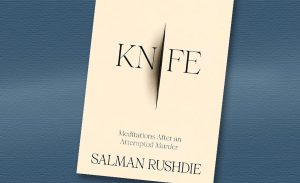Photo by Vivek Singh
Feature Story Highlights
The Bitter Southerner
Transfarmation: Fed up with a system that may harm both bird and man, southern poultry farmers consider the future. May 2025
The Other Palm Beach. August 2023
Ashley Jones Now! April 2022
The Stories I will Live By. August 2020
Can Mexico Beach be Mexico Beach Again? June 2019
Flamingo Magazine
Drivin’ the Dixie Highway: How Florida’s Dream Road Turned to Dust. November 2021
In Search of Spirits in Cassadaga. October 2020
Veterans Hook Fish and Friendship on the Water. July 2020
Racing Icon Hurley Haywood Gets Real About His Personal Life & Career. February 2020
CNN
A gunman killed his brother. Now Farris Barakat is on an American journey. February 2018
Sherry Johnson was raped, pregnant and married by 11. Now she’s fighting to end child marriage in America. January 2018
I on India: Am Indian American rediscovers her rapidly changing homeland. October 2017
From Gandhi to guns: An Indian woman explores the NRA convention. April 2017
The dreams of ‘Baby Noor. March 2017
After attack, Indian immigrants reconsider the American dream. March 2017
In biblical lands of Iraq, Christianity in peril after ISIS. November 2016
Good Morning, Mosul: Pirate radio risks death to fight ISIS on airwaves. October 2016
These crossings are nothing but fatal. August 2016
How the Syrian crisis came home to small-town Canada. March 2016
Ghosts of rape past: Can a survivor find solace in return to the crime scene? November 2015
Our Ferguson, After MB. August 2015
In Nepal, second quake brings second chance for one little girl. May 2015
Heaven, dotted with pockets of hell. May 2015
Bringing Tom Home. May 2015
Watching ‘Selma’ with 103-year-old matriarch of the movement. January 2015
The Crucible of Ferguson – and a family it changed. January 2015
Hotel Death: It’s a place of celebration, where dying guests are promised freedom for their souls. April 2014.
Dead Man Walking: Botched execution unmasks botched system. August 2014
Beyond Boston. April 2014
Dead or alive: Hunt for man-eating tiger won’t end well for conservationist. February 2014
The girl whose rape changed a country. November 2013
Veteran confronts rape, suicide. September 2013
Historic ruling opens door for immigration for same-sex spouses.
Iraq’s Baby Noor: An unfinished miracle. March 2013
Last white Democratic congressman in the Deep South fights for political survival. November 2012
A daughter faces demons of father’s war. November 2012
The Undecided: He started over. Who will restart America? October 2012
Nationality, identity and the pledge of allegiance. July 2012
Even after execution, no finality for mother. April 2012
A symbol of defiance in Gadhafi’s Libya, Eman al-Obeidi just wants to be left alone. April 2012
America’s anomaly: The Place Where War is a Constant. October 2011
The War at Home: A Soldier’s Story on Two Fronts. May 2011
Libyan Revolt Offers New Hope in Search of Father. February 2011
Buried Alive for Six Days, Earthquake Survivors Reunite for first time. December 2010
From Haiti to America — and Back. Quake Survivor Caught Between. August 2010
For Sean Penn, on Ground in Haiti, Time is of the Essence. A day spent with the Hollywood actor as he tries to navigate the aid world. May 2010
After Son’s Death in Iraq, Father Embeds With Unit to Tell His Story. A most unusual journey to Iraq. September 2009
Academic Articles
Debabrata Basu biography. Sankhya, November 20204
Contact Moni
I am available for paid freelancing opportunities.
Please contact me for more information.



